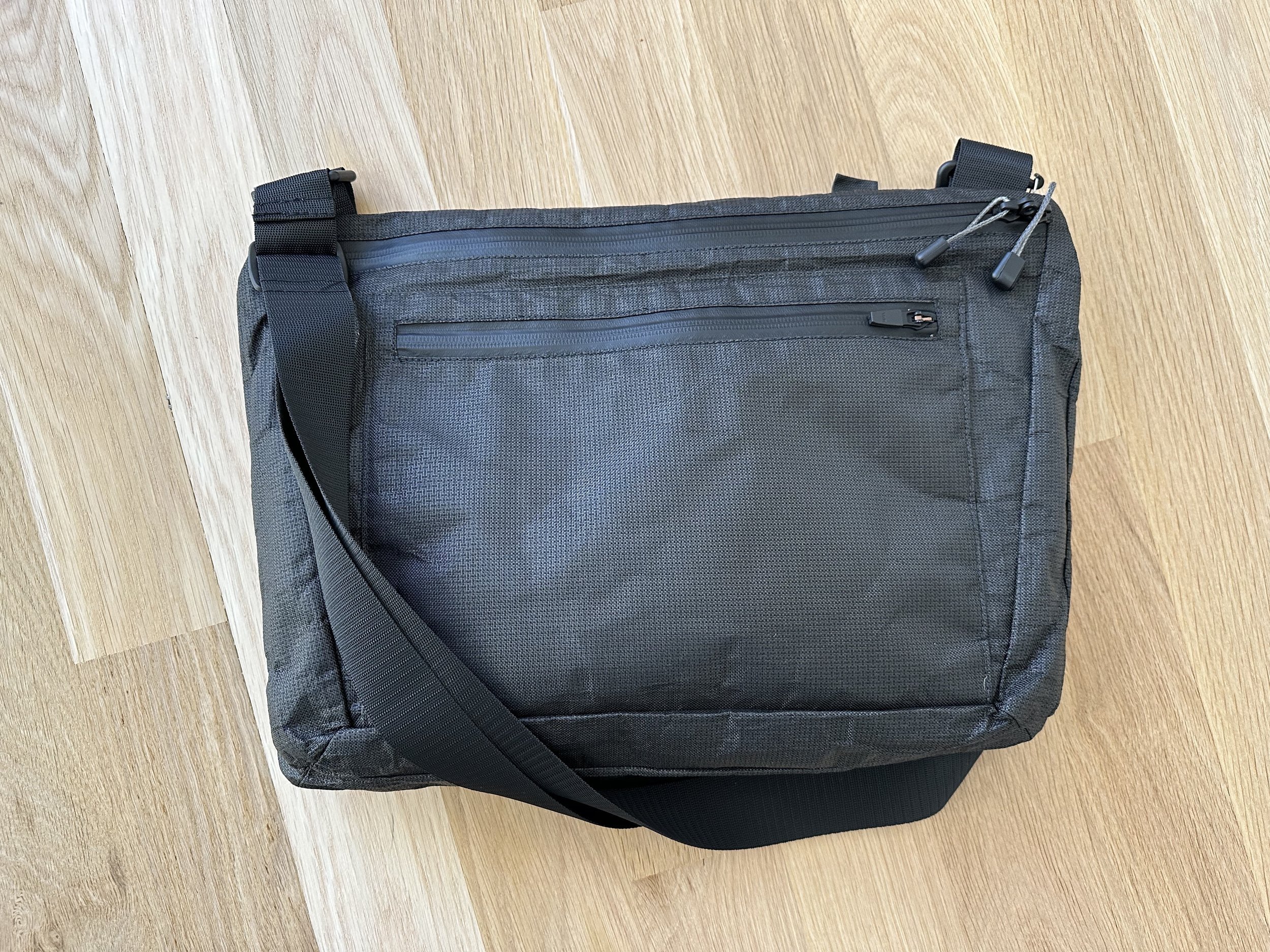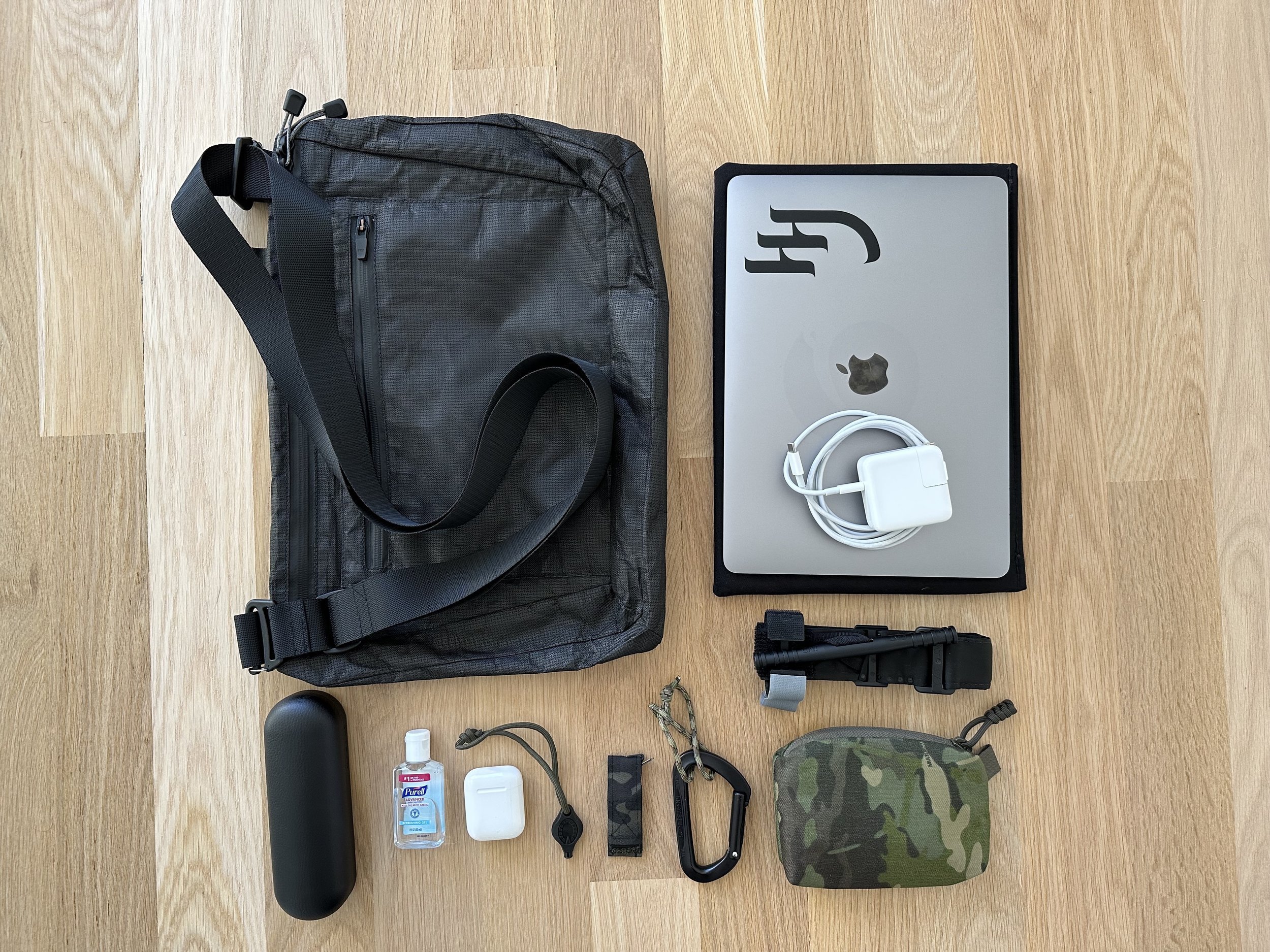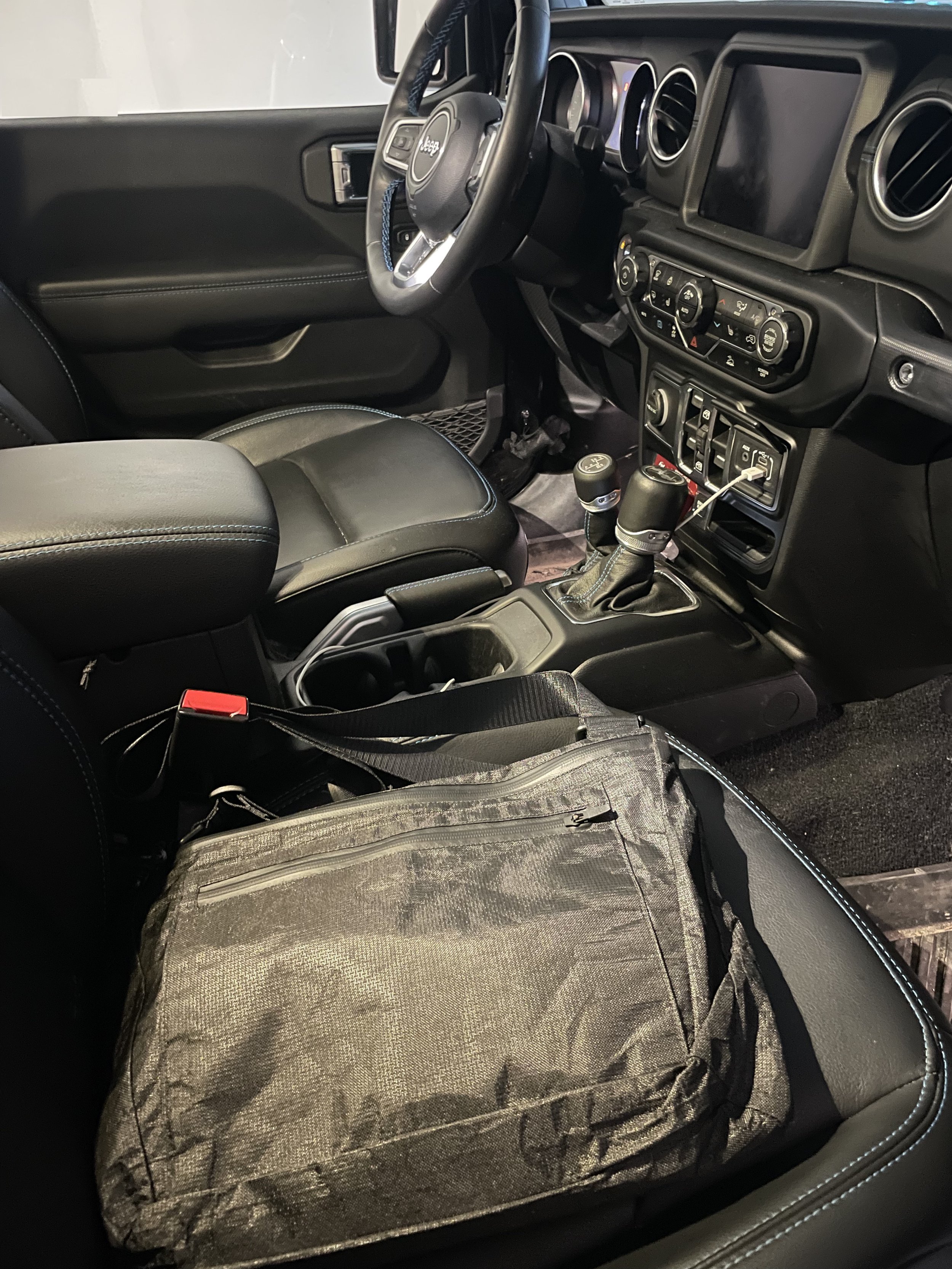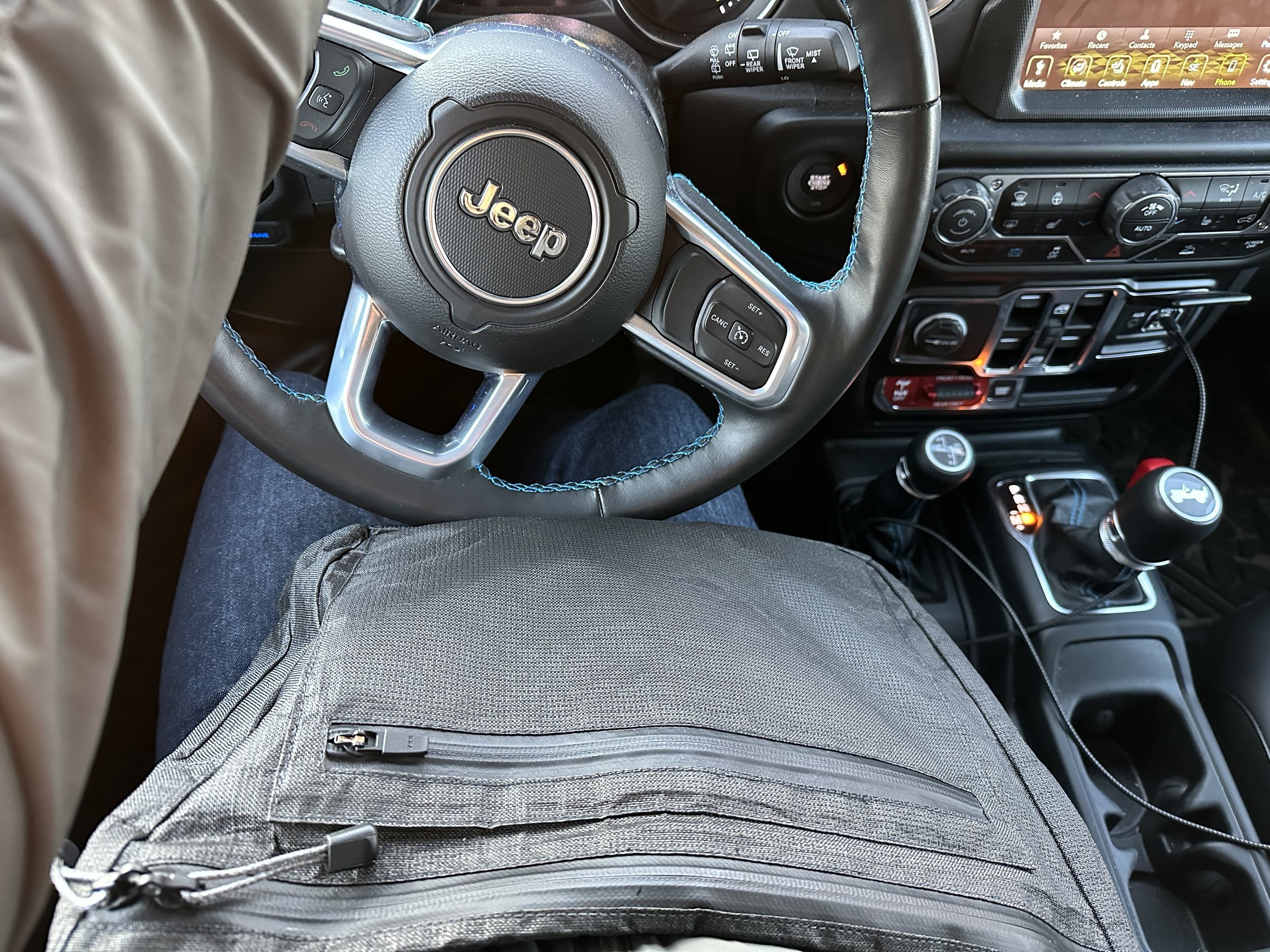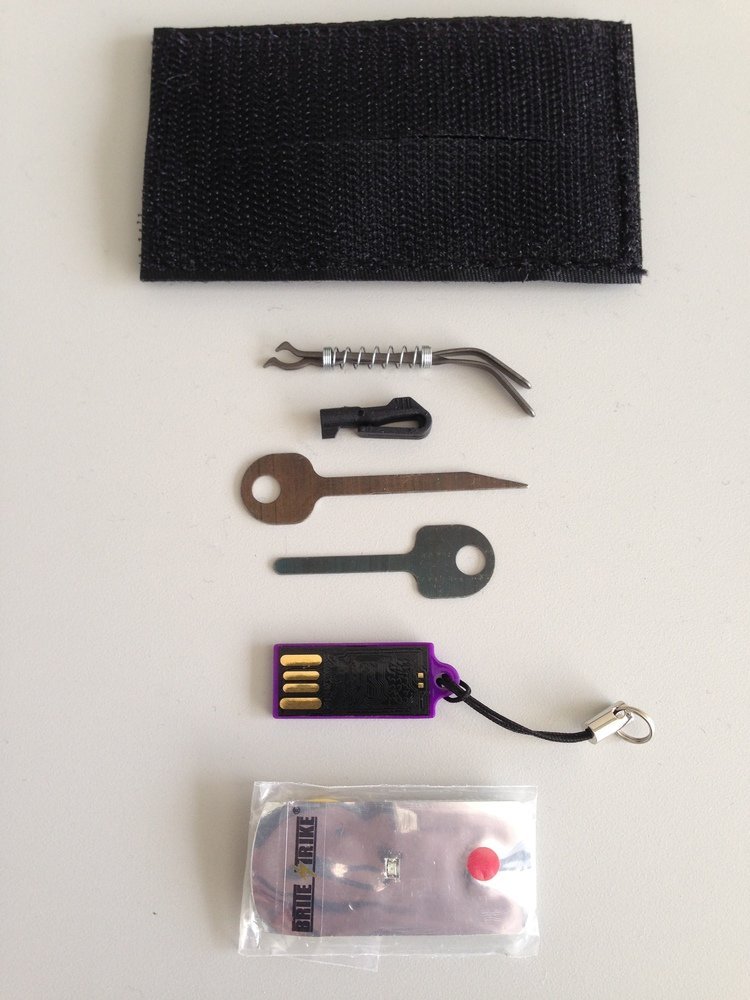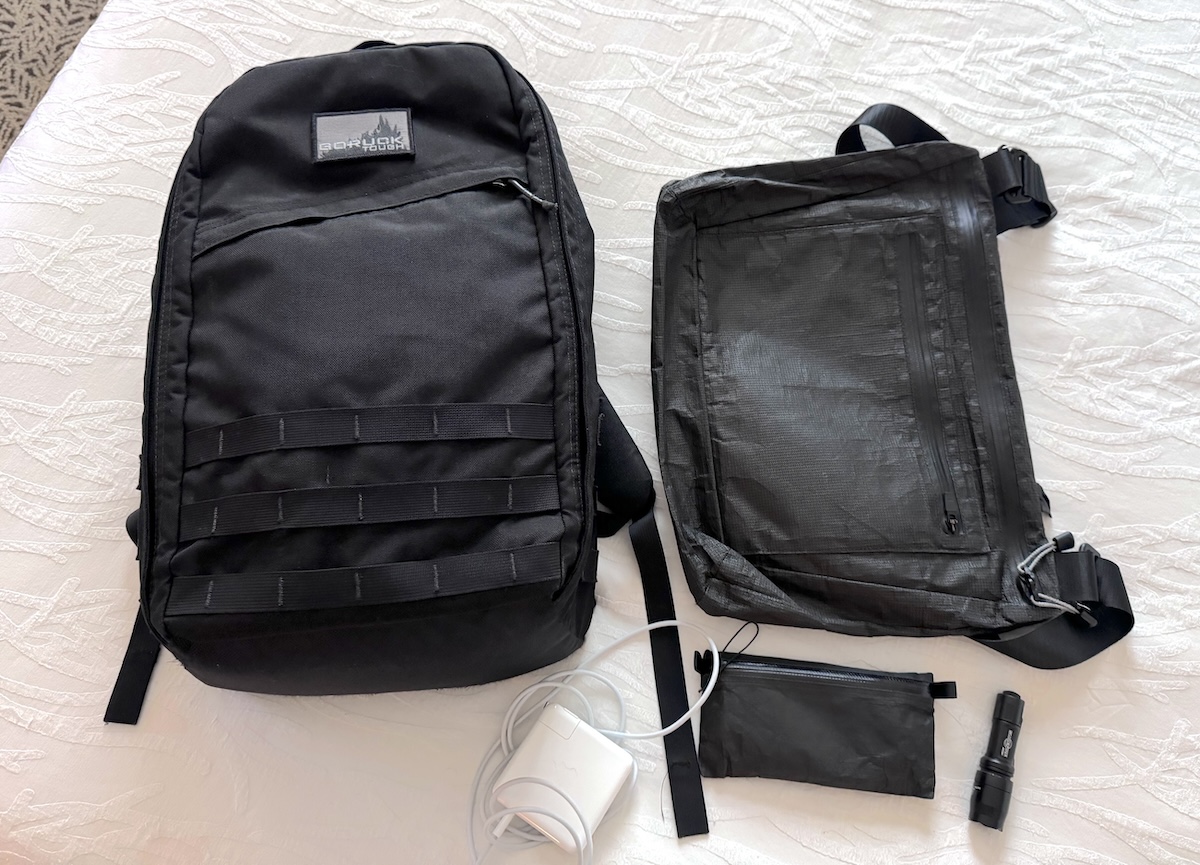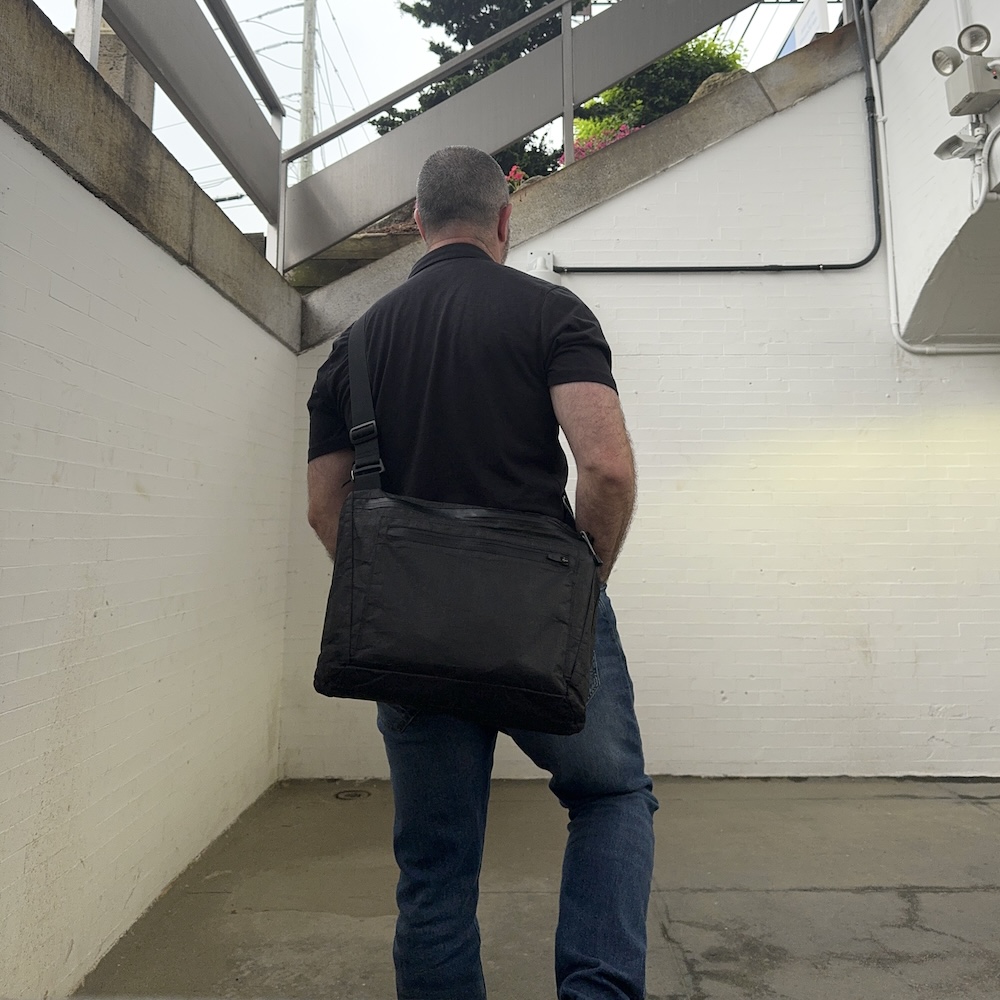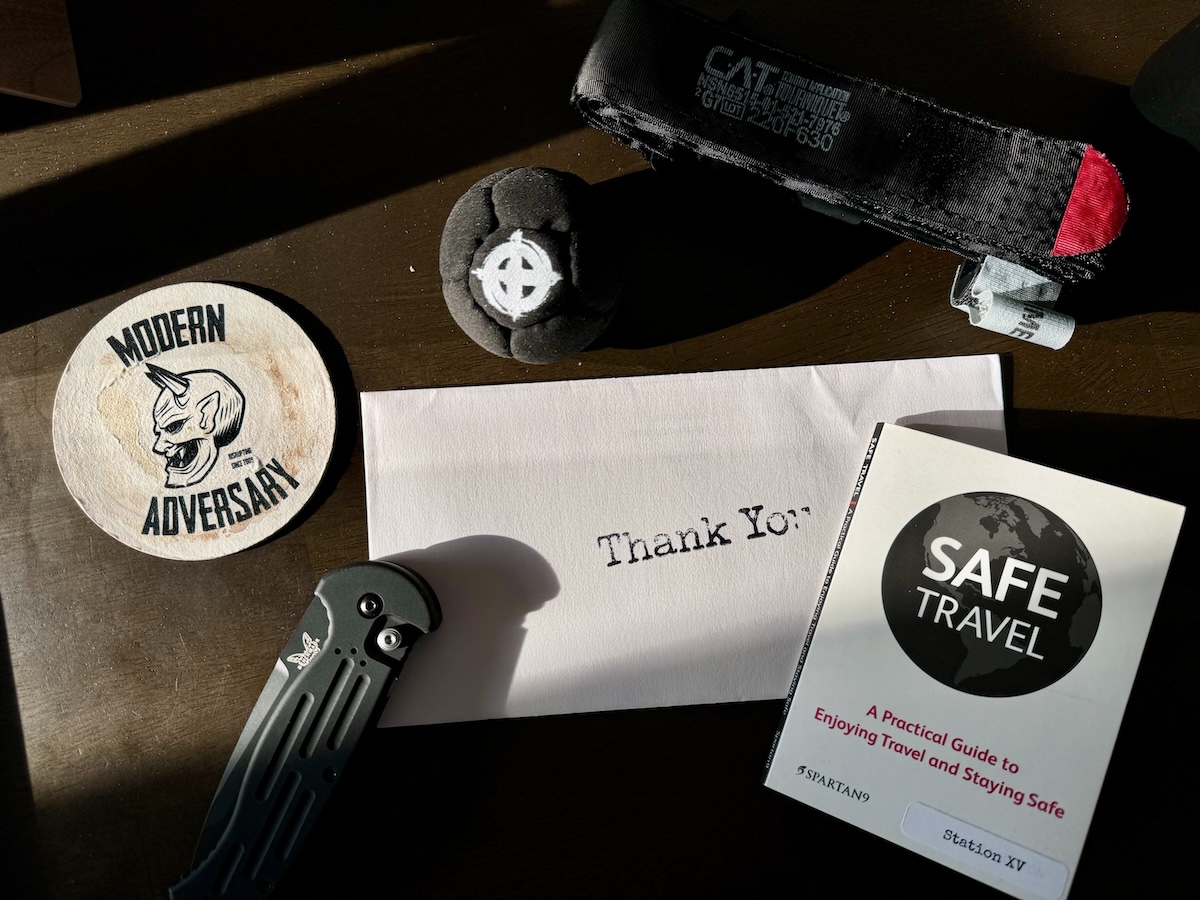Lighter
Feb 2023 - Updated Jun 2024
I’ve had an almost obsession with going light and fast for as long as I can remember. Sure, it started in the military, but I remember trying to optimize my “gear” as a kid as well, always trying to find the optimal combination between usability and portability. That obsession continues today, always causing me to iterate on how light I can go, how I carry my gear, and the equipment I use.
I’m always focusing on efficiency and speed.
On the physical side, I wrote what I carry during my commute, which is pretty minimal already, but one of the things that I wasn’t happy about was the weight of the backpack I was carrying. So, I searched for a lighter alternative to my trusty GORUCK GR Echo or Bullet 15, and after a while I found an alternative that I think is great and have been testing for the past two weeks already. The Spartan9 Street_Satchel Mk I ULTRA. A super simple, low signature, and lightweight sling bag.
I generally prefer backpacks to messenger or sling bags, but the amount of thought and work that Grant (founder of Spartan9) put into the design of the bag and its features really intrigued me. He built this for a purpose and his own needs, and while I’d change some of the design decisions, the bag is awesome as is. I’m a huge believer of purpose-built gear, and I really like the mindset behind this satchel.
For example, there are two hidden pockets inside. They are not apparent when you look inside, but if a checkpoint guard finds them, he wouldn’t think they were hidden pockets. It’s a clever and sneaky design executed perfectly by Grant.
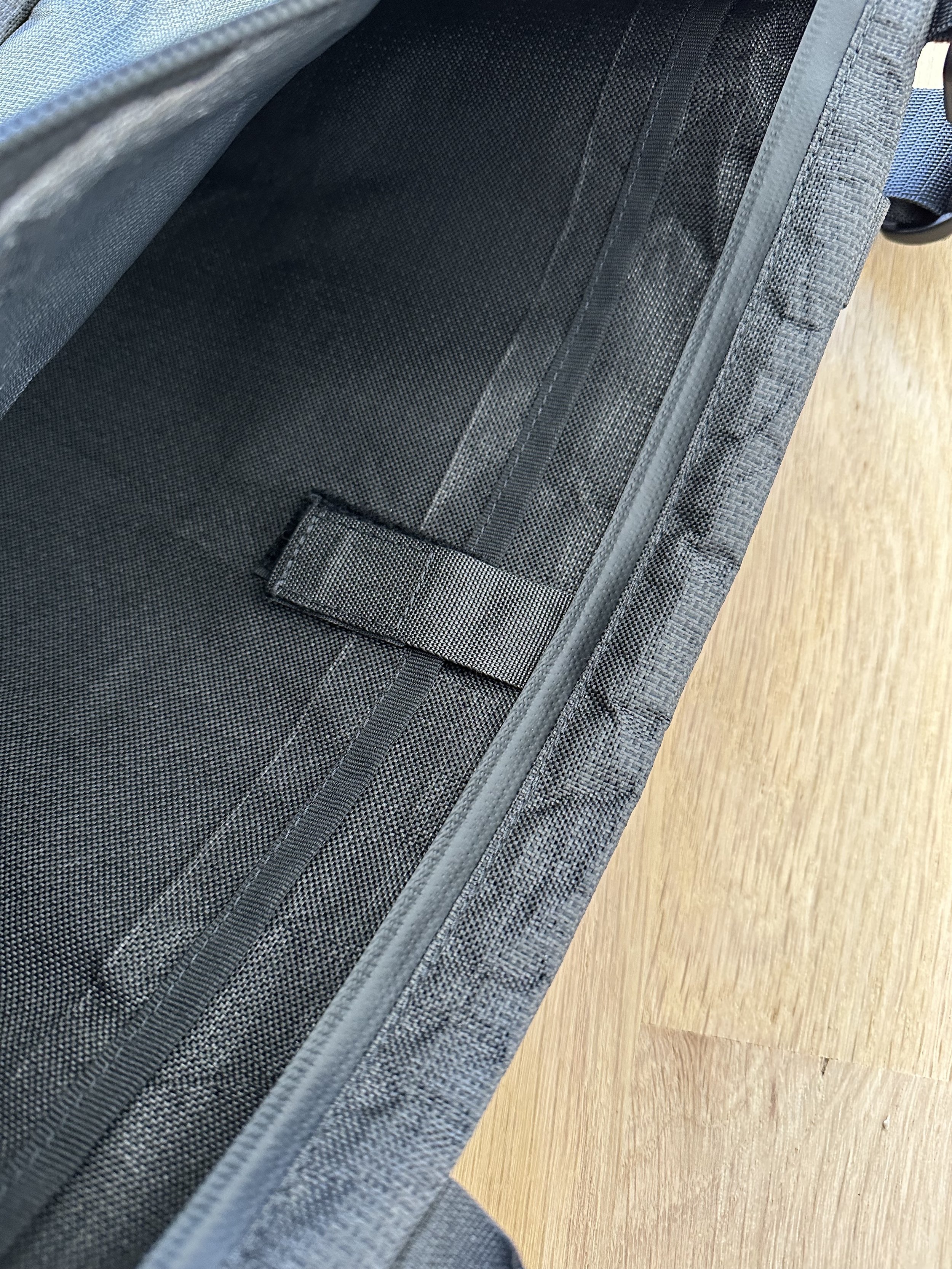 Yes, there is a hidden pocket by the laptop compartment.
Yes, there is a hidden pocket by the laptop compartment.
The satchel is very minimal, forcing you to really think about what you need to carry. It’s a bag designed for the essentials, which in my mind is perfect; unless you need more for a specific purpose, you should always carry only the essentials.
Here’s what I carry:
- Laptop and charger.
- Laptop sleeve. The laptop compartment inside the satchel is bare, without padding, so I added this padded sleeve. This method allows me to remove the laptop sleeve if needed, and then the bag becomes lighter and packable when I don’t have to carry a laptop.
- Tourniquet.
- A small pouch with phone charger cables, a couple of USB thumbdrives, and a Goal Zero charger.
- A binner with paracord. For those times in the commute when you need to keep the bag off the floor.
- Entry / E&E kit. You should be able to get into places or out of things in case of an emergency. Read more about it here.
- Light.
- Earphones.
- Hand sanitizer.
- Glasses
The exterior look and super lightweight material fly under the radar in the city, so that’s an added bonus. It’s really slick. I like that there are no markings, external straps, MOLLE, or anything protruding.
I had to adjust how I work with my things while commuting with the satchel, since it’s a different way of organizing my stuff, but after two weeks it feels natural.
Still, I prefer a backpack, so I have been teaching myself how to build one. I’m in the process of designing and soon building my own, based on my own needs, and with a light and fast approach to it. The backpack will be minimal, like the Street_Satchel, completely slick outside, and use the lightest possible materials that don’t compromise durability.
It’ll be a while until it’s ready, but let’s see how this goes.
This brings me to the question a reader sent a few weeks back. He asked: how do you approach selecting the right gear for everyday and traveling?
Everyday gear often differs from what you need while traveling. There are some similarities if you go light like I do, but you need to start by thinking about the purpose of your trip. That will dictate what you bring.
For example, If you are commuting to a large city with things that are readily available then you can adapt to that and carry less. On the other hand, if you are traveling to another country, where the situation on the ground is very fluid, then you might need to carry some more in order to be ready for it. Things like emergency medical kits, or emergency communication devices might be needed. Remember: the mission dictates the weapon, and the weapon dictates the movement.
You have to think about what you will be doing, the issues you may encounter, and whether your kit needs to serve specific purposes. There are, however, a few basic things you can do in both cases to get a standard or baseline going:
- Pick the smallest possible pack. This will force you to think about what you can carry and whether you need the item or not.
- Focus on essentials that can serve more than one purpose, this way you’ll minimize the amount of stuff you will carry. For example, a good metal flashlight with high lumens can be used as a last resort weapon.
- If you have a choice between multiple things that serve the same purpose, pick a lighter one. Always strive to get lighter.
- Once you have all your stuff, organize it neatly on the floor. Look at it. Discard at least 50% of it. Think about how you’d use the item and if you would use it.
- Create a system to organize your things. Always try to put the items in the same place, this way in cases of an emergency, when adrenaline is pumping, or in the dark, you can always find what you need without having to think.
- Pack light, go fast. One small backpack (leaving your hands free) should be it for traveling. It will allow you to adapt to whatever situation you encounter on the ground.
Jan Chipchase has some really good tips and things to say about packing in The Psychology of Packing. He writes, for example:
“Wheeled luggage leads us astray. During packing wheels promise weightlessness, which then leads to luggage filled to capacity, and heavier items being packed. While we’re still at home, in our idealised, airport-smooth-surface view of the world this isn’t a problem, but in the real world it rapidly shapes what the journey can become: from airport escalators that don’t work; to hitching a ride on the back of a motorbike; to, at the last minute, enjoying a nearby mountain range for the weekend.”
Sometimes you have no choice but to really go minimal, and some others you can bring some extras. What I found always works for me is to really focus on the worst case scenario, and see if I have all I need for that, or if I don’t, whether I have the option of procuring it where I am. Again, depending on what you are doing and where you are going.
To give you an example, back in the days of the Digital Ops Group (2009-2016), when we were traveling all over the world, and in many cases going to risky places, we decided that we wanted to have a last resort way of sending an SOS, when even the cellphones or GPS beacons were not working.
True to the being light mindset, we played with a few options and we settled on something we called the Last Resort Uban Distress Kit, consisting of a few items that would allow us to get into places, search for a phone or a computer and use them to get the word out. One of the key elements of that was a little thumbdrive that served two purposes. If used by us, it would allow us to boot any computer from it, and run a secure Linux distro that had a few tools built in.
And if discovered by the bad guys and plugged into a computer already running, it would cause a program to run in the background that would attempt to send a geo location of where the computer was. All this was hidden and ultra lightweight. We carried that kit everywhere.
This is a good example of lightweight stuff that serves a purpose. Try to think the same way, try to find the lightest possible option for what you need.
At the end of the day it is about really understanding the purpose of your packing. Mission does dictate the weapon. Understand your goal, whether commuting or traveling, and once you know what you’d like to achieve (what the mission is), then select the most minimal kit you can.
If you want some extra tips, Danny (also a former member of the Digital Ops Group) at the Urban Commuter, has several articles about packing and going light, as well as mindset and safety while commuting.
Update June 2024
It’s been more than a year since I started using the Station XV Street Satchel. Grant has opened a full range of great gear since and I've found the satchel so good that I’m considering getting some of his other gear.
As I mentioned above, a lot of thought went into designing and building the Satchel. The key design features and philosophy that attracted me were: discreet looks, super lightweight, packable, and customizable with accessories. The MKI version I have recently got one of Station XV’s new straps for their updated Satchel. I think this one is a much better strap for urban movement and safety, with a lot more adjustment and easier to release if you get dragged by your bag.
I recently took the Satchel on a several day trip where I needed to hop on airplanes and trains, and walk a lot in between locations. The locations I had to go through were often not the best, so I had to go light and remain fast.
For this trip I packed all I needed in my OG (2010 model) GORUCK GR1, now vintage, including the Satchel. The GR1 would remain in the hotel while the Satchel with the laptop, charger, tourniquet, and urban escape kit would go with me on the move. I opted to leave the laptop padding sleeve I built for the Satchel on this one, since I needed to be able to remain light and also fold the Satchel inside the GR1. It was ok, in spite of not having padding on the laptop pocket, the laptop was good.
It did rain a couple of times, one of them torrential. The kit, however, remained dry inside. Another win in my book.
I know Grant is working on designing and building a travel backpack. If that one is going to be anything near the quality, usability, and organization that the Satchel is, I’m in. I’ve been looking for a more discreet travel backpack and I can’t wait to see what the Station brings.
Overall, VERY impressed. A year in, some patina and fold on the material, but the Satchel has become my favorite commuting and traveling piece to carry my essentials.

